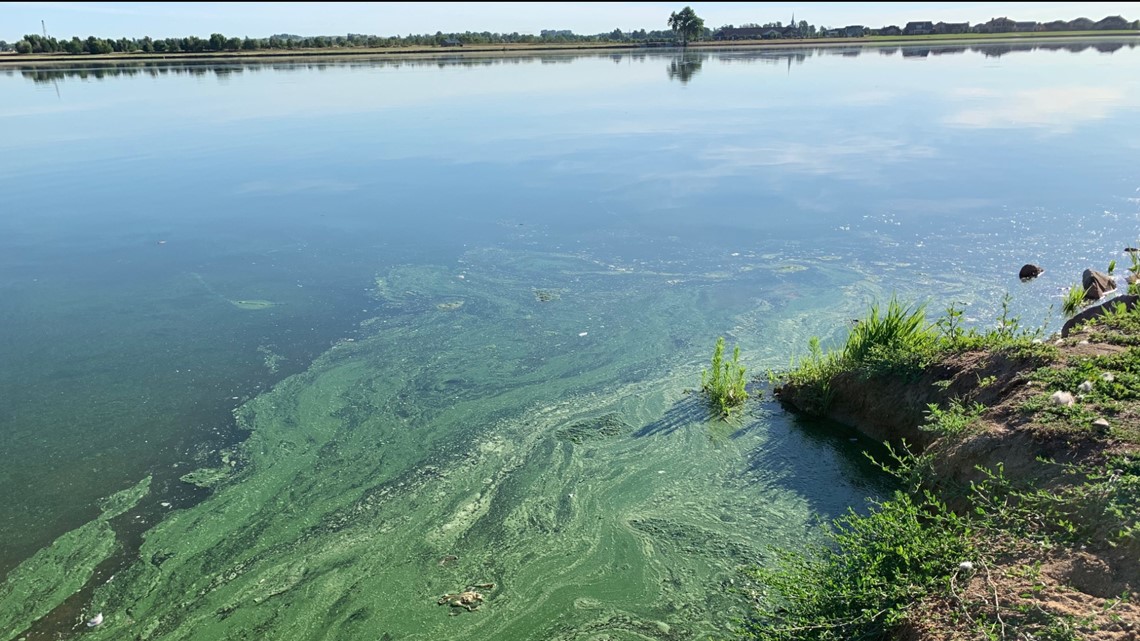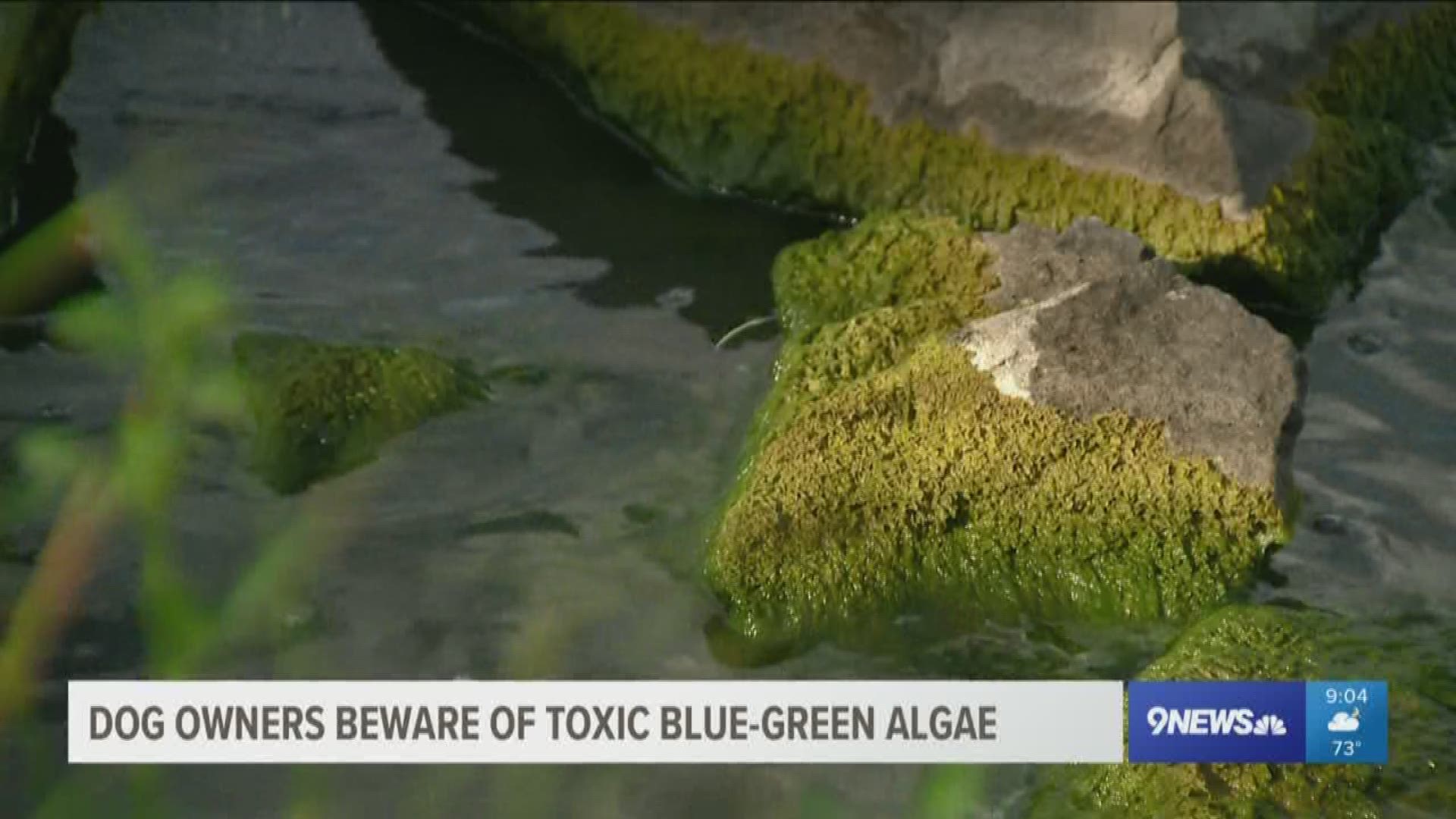BOULDER COUNTY, Colo. — As temperatures start to warm up this summer, The City of Boulder wants to remind residents to be careful around lakes and ponds where blue-green algae blooms may be present.
Algae has been observed this year at Wonderland Lake in north Boulder, where swimming, wading and boating are prohibited, city officials said. Community members are asked to keep dogs out of Wonderland Lake until further notice.
Blue-green algae is a bacteria found in non-flowing freshwater that can be fatal to animals if ingested. The algae naturally occurs in aquatic ecosystems and can appear rapidly – especially during the summer with hot weather and in slow-moving water bodies, such as lakes, according to the Colorado Department of Public Health and Environment (CDPHE).
"Some algal blooms can contain cyanobacteria –often referred to as blue-green algae," the city said. "While the vast majority of algae often seen in ponds and lakes during summer months are not toxic, cyanobacteria can produce toxins, which can be harmful to dogs and humans at elevated levels."
>Watch above: Toxic blue-green algae a growing threat to dogs
At lakes and ponds where dogs are allowed to enter the water, people should practice caution if algae are present.
The city said Anglers should also exercise caution and follow state recommendations to clean any caught fish thoroughly and to discard guts appropriately.


According to the CDPHE, harmful algae blooms often have the following characteristics:
- May look like thick pea soup or spilled paint on the water's surface.
- Can create a thick mat of foam along the shoreline.
- Usually are green or blue-green, although they can be brown, purple or white.
- Sometimes are made up of small specks or blobs floating just at or below the water's surface
Harmful algae blooms are not:
- Long, stringy bright green grass strands that feel either slimy or cottony.
- Mustard yellow (this probably is pollen).
SUGGESTED VIDEOS: Local stories from 9NEWS

